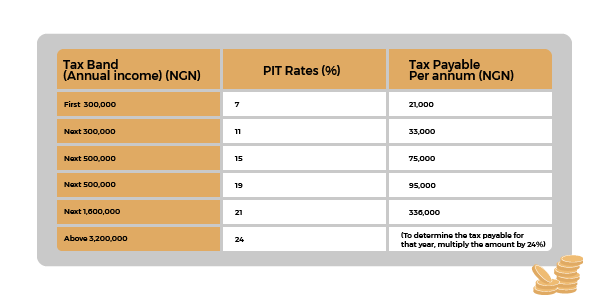Choosing the Right Business Structure For Your Nigerian Venture From the Diaspora

by Counseal Team
Updated January 1, 2025

Planning to establish a business in Nigeria from abroad? Your first crucial decision is selecting the right business structure. This choice will fundamentally shape your venture’s operations, tax obligations, and legal framework. Let’s explore how to make this critical decision with confidence.
Understanding Business Structures in Nigeria
Nigerian law recognises several business structures, each suited to different entrepreneurial needs:
Sole Proprietorship
The simplest business structure, ideal for individual entrepreneurs starting small-scale operations.
Advantages:
- Quick and inexpensive setup
- Complete control over business decisions
- Direct profit access
- Simplified tax reporting
Disadvantages:
- Unlimited personal liability
- Limited access to capital
- Business continuity challenges
- Potential credibility issues with large contracts
Partnership
A structure where two or more individuals share ownership and responsibilities.
Advantages:
- Shared financial and operational responsibilities
- Combined expertise and resources
- Relatively simple formation
- Flexible profit-sharing arrangements
Disadvantages:
- Joint liability for business debts
- Potential partner disputes
- Complex dissolution process
- Limited external investment options
Limited Liability Company (LLC)
A hybrid structure offering personal asset protection and operational flexibility.
Advantages:
- Personal asset protection
- Enhanced credibility
- Flexible management structure
- Easier access to capital
- Tax advantages
Disadvantages:
- Higher setup and maintenance costs
- More complex regulatory requirements
- Annual compliance obligations
- Stricter record-keeping requirements
Public Limited Company (PLC)
The most complex structure, suitable for large-scale operations and public investment.
Advantages:
- Unlimited capital-raising potential
- Enhanced business credibility
- Perpetual existence
- Easy ownership transfer
Disadvantages:
- Extensive regulatory requirements
- Higher operational costs
- Complex governance structure
- Stringent reporting obligations
Key Factors in Structure Selection
Business Scale and Goals
Consider your venture’s immediate needs and long-term aspirations:
- Market Entry Strategy: Initial scale and expansion plans
- Capital Requirements: Current resources and future funding needs
- Operational Complexity: Management structure and decision-making processes
- Exit Strategy: Long-term succession or sale plans
Regulatory Compliance
Each structure carries specific regulatory obligations:
Registration Requirements
- Corporate Affairs Commission (CAC) registration
- Tax identification and registration
- Industry-specific licenses
- State and local permits
Ongoing Compliance
- Annual returns filing
- Financial statement submissions
- Shareholder meetings (for companies)
- Regulatory updates and renewals
Success Stories: Learning from Established Ventures
Tech Startup Success: Leveraging LLC Structure
A prominent Lagos-based tech startup exemplifies the strategic advantage of choosing an LLC structure for tech ventures in Nigeria. According to TechPoint Africa, this approach has become a blueprint for success in Nigeria’s tech ecosystem.
Key Success Factors:
- Strategic LLC structure selection
- Partnership with local tech hubs
- Access to talented developer pool
- Adaptable business model
- Deep understanding of Nigerian consumer behavior
Impact Metrics:
- Successful registration and operational launch within 3 months
- 80% effectiveness rate in local partnerships
- Significant market penetration in first year
- Established blueprint for foreign tech companies
Manufacturing Excellence: Joint Venture Success
A leading manufacturing company demonstrated the power of joint ventures in Nigeria’s industrial sector. Their experience offers valuable insights for foreign manufacturers entering the Nigerian market.
Strategic Approach:
- Joint venture with established Nigerian firm
- Leveraged local market expertise
- Accessed existing distribution networks
- Shared infrastructure and resources
- Combined international expertise with local knowledge
Measurable Outcomes:
- 25% increase in operational efficiency (PwC Survey)
- Enhanced market penetration through local networks
- Significant cost advantages through resource sharing
- Successful navigation of cultural and operational challenges
Key Lessons from Both Ventures
- Structure Selection Impact
- Different sectors require different approaches
- Legal structure affects operational efficiency
- Local partnerships add significant value
- Success Enablers
- Clear communication channels
- Strong local partnerships
- Adaptable business models
- Cultural sensitivity
- Regular stakeholder engagement
- Risk Mitigation
- Legal structure as protection
- Local expertise for market navigation
- Partnership for resource optimization
- Compliance through proper structuring
Strategic Decision Framework
Assessment Checklist
Professional Support Network
Build a reliable support system:
- Legal Counsel
- Structure registration
- Compliance monitoring
- Contract review
- Financial Advisors
- Tax planning
- Financial structuring
- Investment strategy
- Local Partners
- Market insights
- Operational support
- Network access
Implementation Guide
Step-by-Step Process
- Structure Selection (Week 1-2)
- Evaluate options
- Consult professionals
- Make informed decision
- Documentation (Week 3-4)
- Prepare required documents
- Verify compliance requirements
- Arrange authentications
- Registration (Week 5-8)
- Submit CAC application
- Obtain tax registrations
- Secure permits
- Operational Setup (Week 9-12)
- Establish banking relationships
- Implement accounting systems
- Deploy management structure
Risk Management and Mitigation
Common Risks and Solutions
- Regulatory Compliance
- Regular audits
- Professional guidance
- Update monitoring
- Operational Risks
- Standard operating procedures
- Quality control systems
- Performance monitoring
- Financial Risks
- Multiple banking relationships
- Currency risk management
- Capital adequacy planning
Conclusion and Next Steps
Your choice of business structure lays the foundation for your Nigerian venture’s success. Consider these key takeaways:
- Match structure to strategy
- Plan for growth
- Build strong support systems
- Maintain compliance
- Monitor and adapt
Ready to Start?
Contact our experts at Counseal.com for personalised guidance on:
- Structure selection
- Registration process
- Compliance management
- Operational setup





